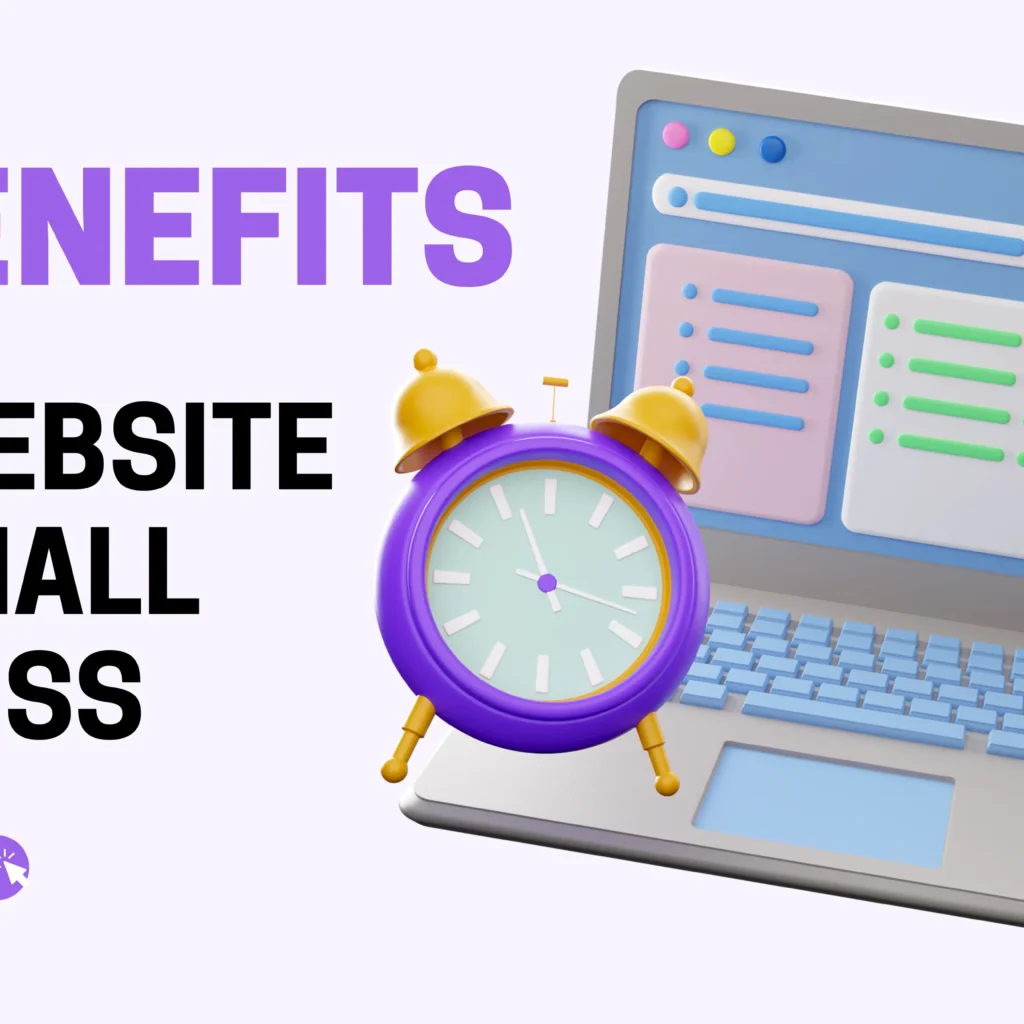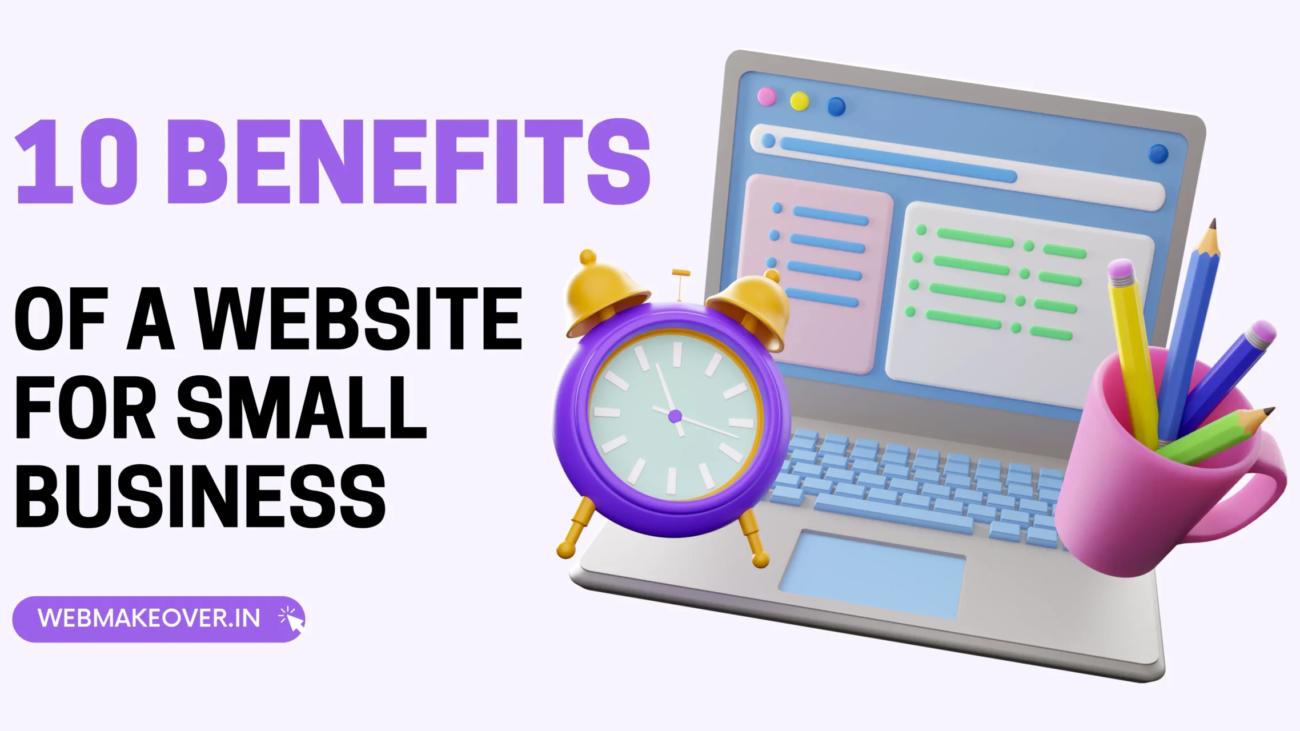10 Benefits of a Website for Small Business
Table of Contents
10 Benefits of a Website for Small Business In the modern business landscape, establishing a robust online presence is crucial for the success of small enterprises. A pivotal aspect of this presence is a well-designed website. Not only does it serve as a digital storefront, but it also offers an array of advantages that can profoundly influence the growth and sustainability of a small business.

1. Increased Online Visibility
A website enables small businesses to extend their reach beyond their localities, attracting potential customers from diverse geographical locations. Through effective Search Engine Optimization (SEO) strategies, a website can attain higher rankings in search engine results, enhancing its visibility to users seeking relevant products or services.
2. 24/7 Accessibility
Unlike traditional brick-and-mortar stores with fixed operating hours, a website provides round-the-clock accessibility to customers. This perpetual availability facilitates convenience and flexibility, allowing potential clients to browse products or services and make purchases at their convenience.
3. Establishing Credibility
A professionally crafted website can bolster the credibility of small businesses, fostering trust among potential customers. Features such as informative content, client testimonials, and secure payment gateways contribute to building a positive brand image, thereby increasing the likelihood of customer engagement.
4. Cost-Effective Marketing
Maintaining a website serves as a cost-effective marketing strategy for small businesses compared to traditional advertising methods. With various digital marketing tools and techniques available, businesses can efficiently reach their target audience and monitor the efficacy of their marketing campaigns in real-time.
5. Competitive Advantage
In a competitive marketplace, a well-designed website can differentiate small businesses from their counterparts. By offering unique features and seamless navigation, a website enhances the overall customer experience, providing businesses with a competitive edge and positioning them as industry frontrunners.
6. Targeted Marketing
Utilizing analytics and user data gleaned from the website, small businesses can gain invaluable insights into their target audience’s preferences and behaviors. This information enables businesses to tailor their marketing endeavors effectively, delivering personalized content and promotions to specific customer segments.
7. Customer Engagement
A website serves as a platform for small businesses to engage with their customers on a deeper level. Features such as live chat support, interactive forms, and social media integration facilitate communication, nurturing relationships with customers and fostering satisfaction and loyalty.
8. Showcasing Products and Services
A well-structured website offers small businesses an avenue to showcase their products or services effectively. Through compelling visuals, detailed descriptions, and user reviews, businesses can highlight their offerings and persuade visitors to make informed purchasing decisions.
9. Data Collection and Analysis
By harnessing analytics tools, small businesses can gather pertinent data about visitor behavior on their websites, including traffic patterns, page views, and conversion rates. This data empowers businesses to make informed decisions, refine their marketing strategies, and optimize their websites for enhanced performance.
10. Driving Sales
Ultimately, the primary objective of a website for small businesses is to drive sales and bolster revenue streams. With features such as e-commerce functionality and secure payment gateways, businesses can streamline the purchasing process, encouraging visitors to make transactions directly through the website, thereby augmenting sales and profitability.
Conclusion
In conclusion, a website serves as a potent tool that offers myriad benefits for small businesses endeavoring to establish a robust online presence and thrive in the digital arena. From heightened visibility and credibility to cost-effective marketing and enhanced customer engagement, the advantages of a website are manifold. By investing in a meticulously designed and optimized website, small businesses can effectively reach their target audience, drive sales, and chart a course for long-term growth.
FAQs (Frequently Asked Questions)
- Is a website necessary for my small business?
- Yes, a website is indispensable for small businesses seeking to establish an online presence and compete effectively in the digital realm.
- How much does it cost to develop a website for a small business?
- The cost of website development varies depending on factors such as complexity, features, and functionality. It’s advisable to consult with web development professionals to obtain accurate cost estimates.
- Can I manage my website without technical expertise?
- Yes, many website builders and content management systems offer user-friendly interfaces that enable business owners to manage their websites efficiently, even without technical know-how.
- How long does it take to see results from having a website?
- The timeline for seeing tangible results from a website depends on various factors such as SEO efforts, marketing strategies, and industry competition. Generally, it may take several weeks to months to witness significant improvements in online visibility and sales.
- If I already have a strong social media presence, do I still need a website?
- While a robust social media presence is beneficial, having a website provides distinct advantages such as greater control, customization, and credibility. A website serves as a centralized hub for information and transactions, complementing social media platforms’ communication and networking functions.


